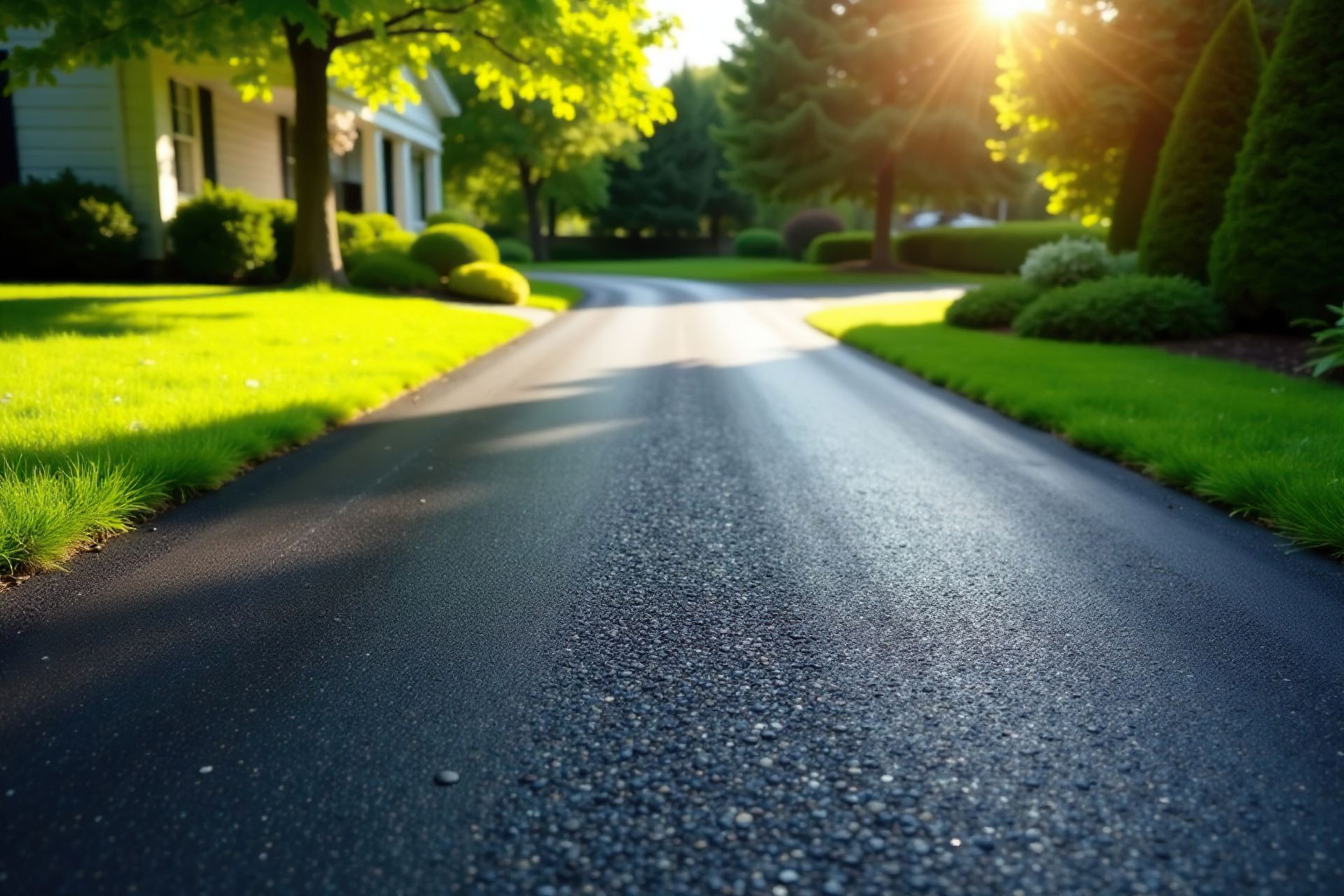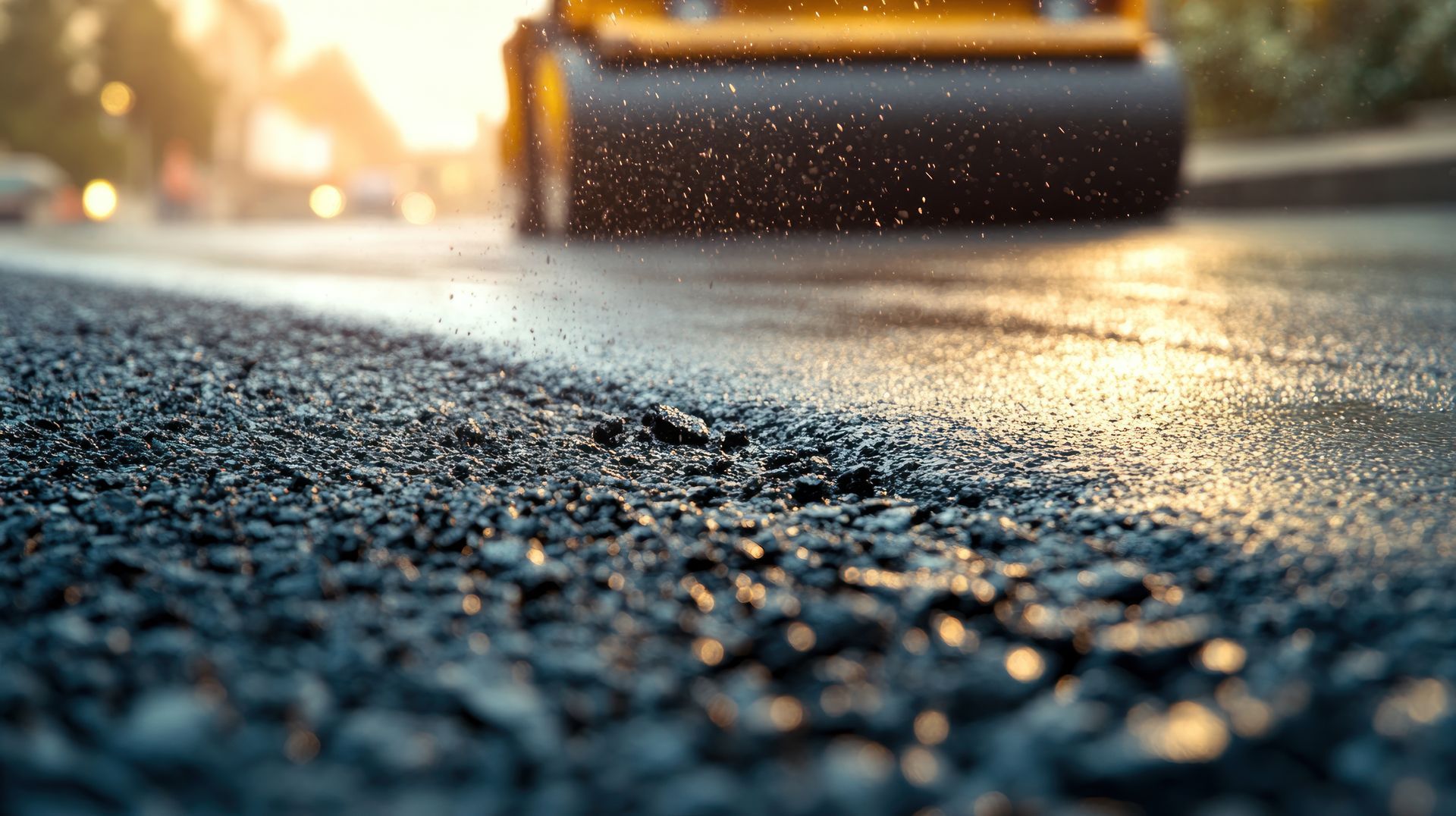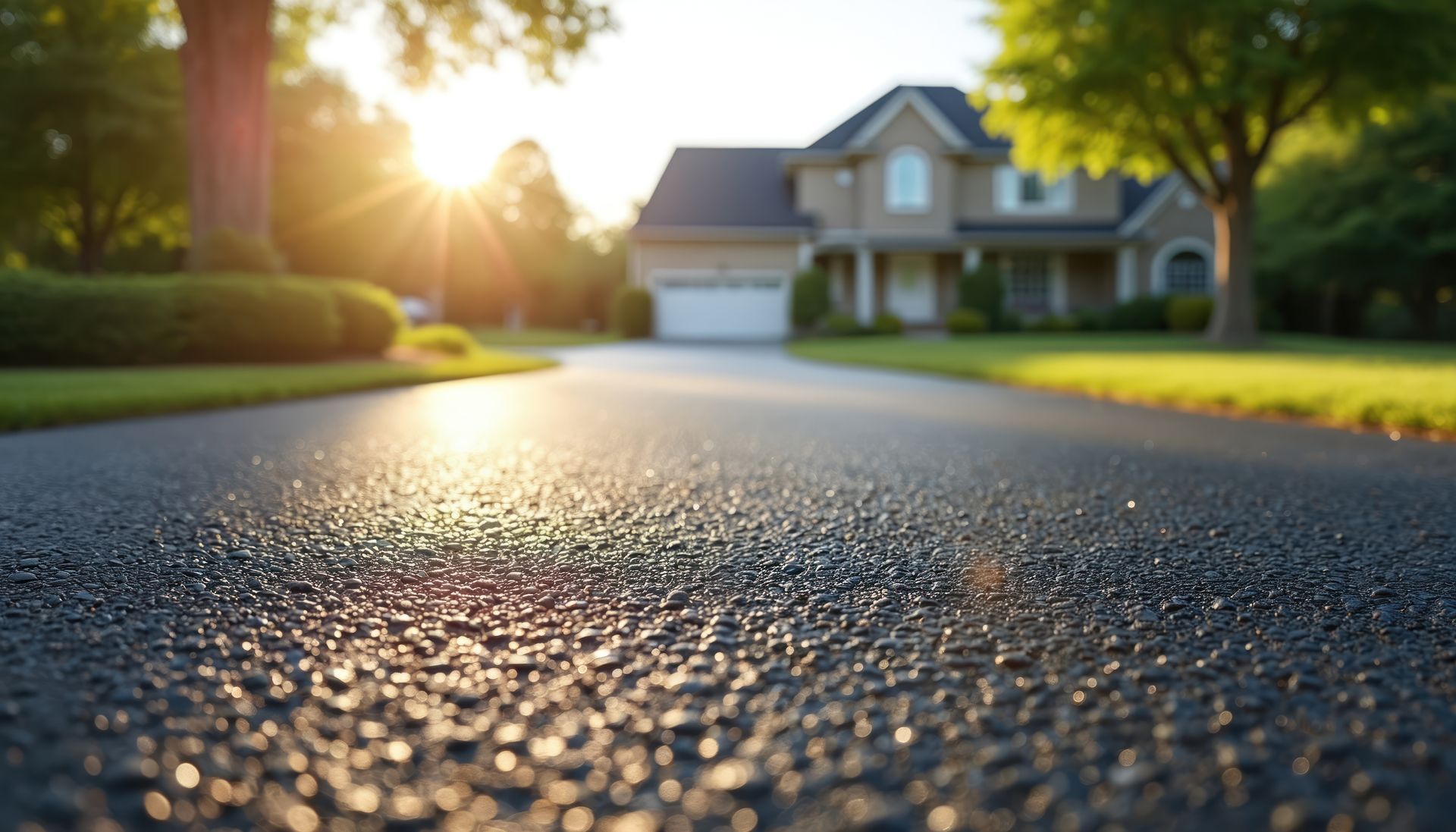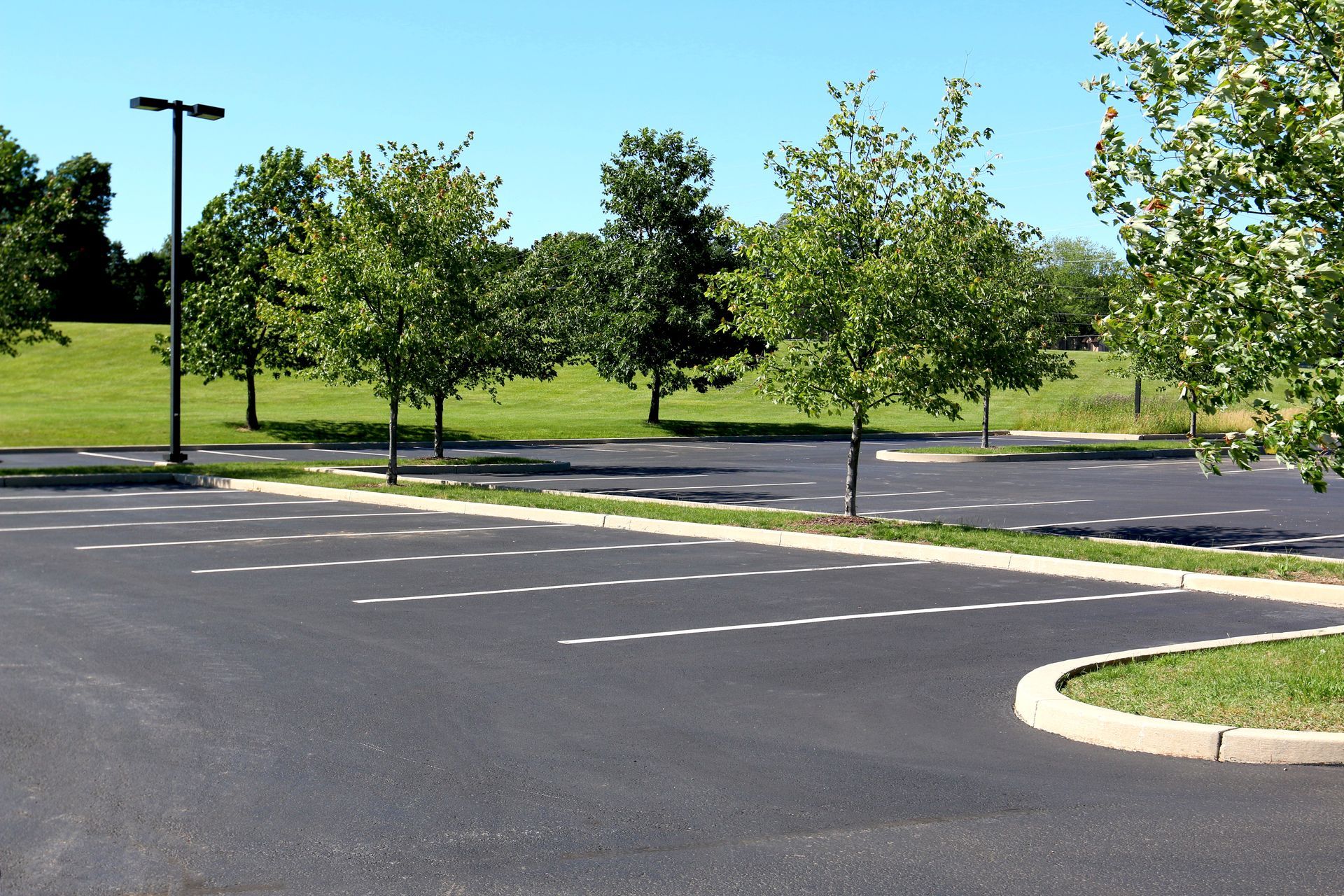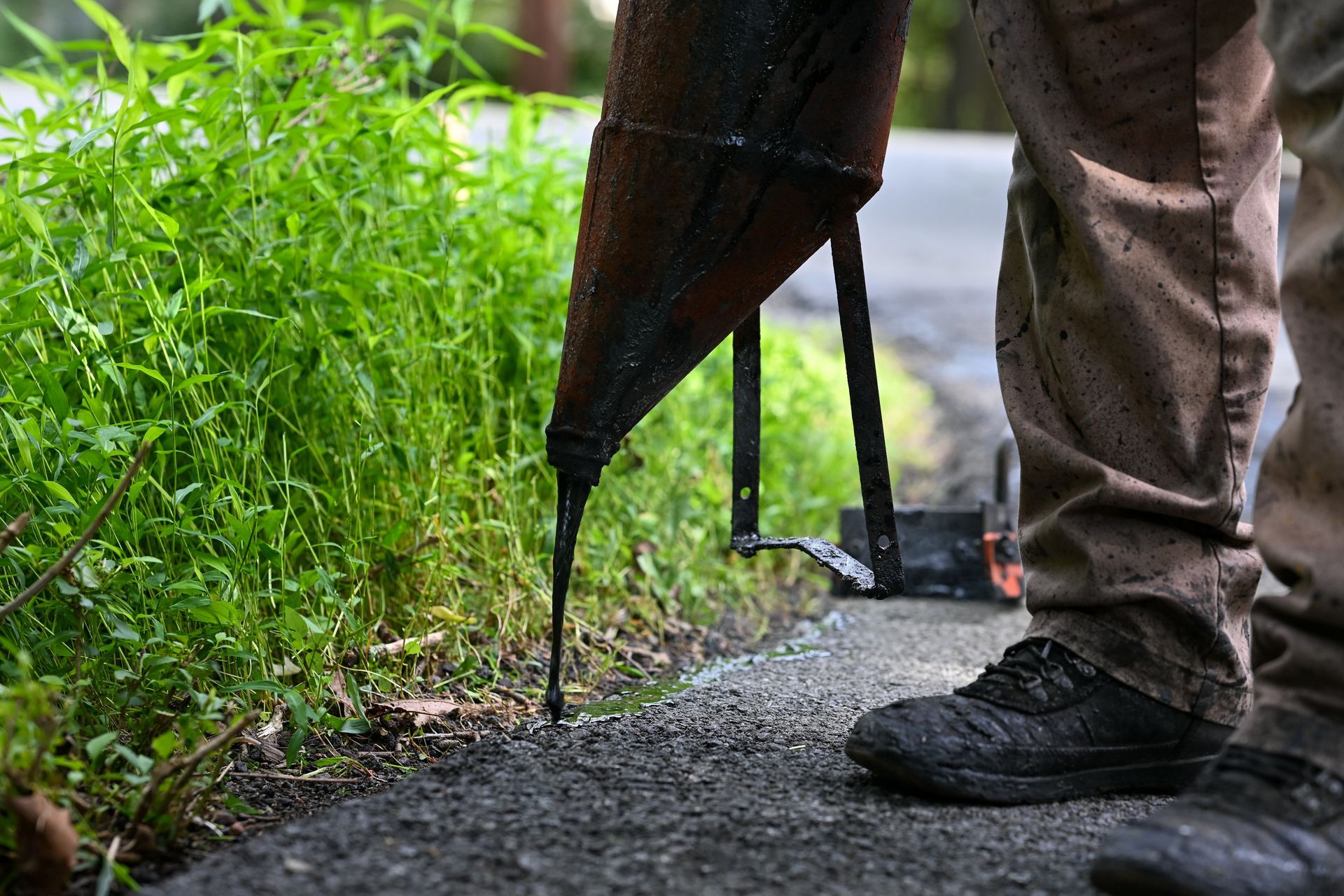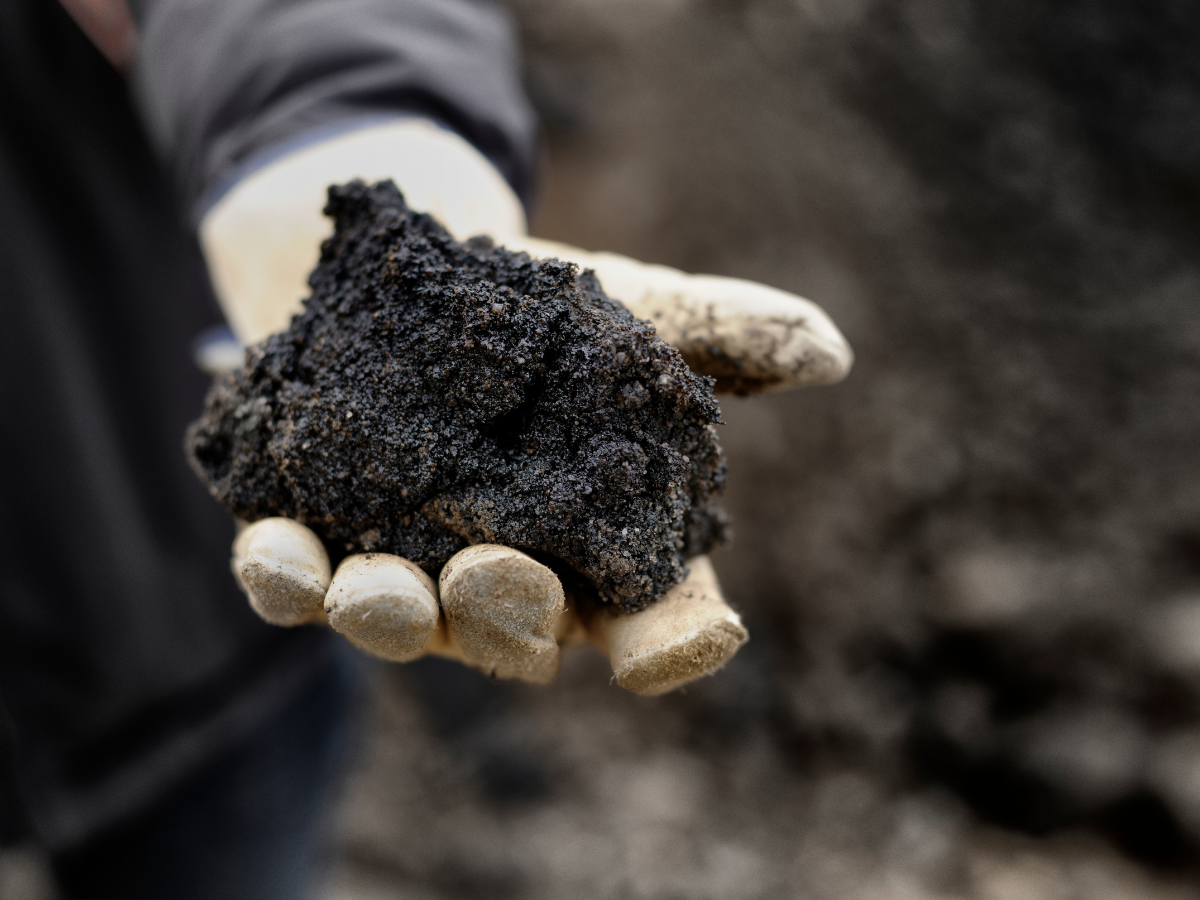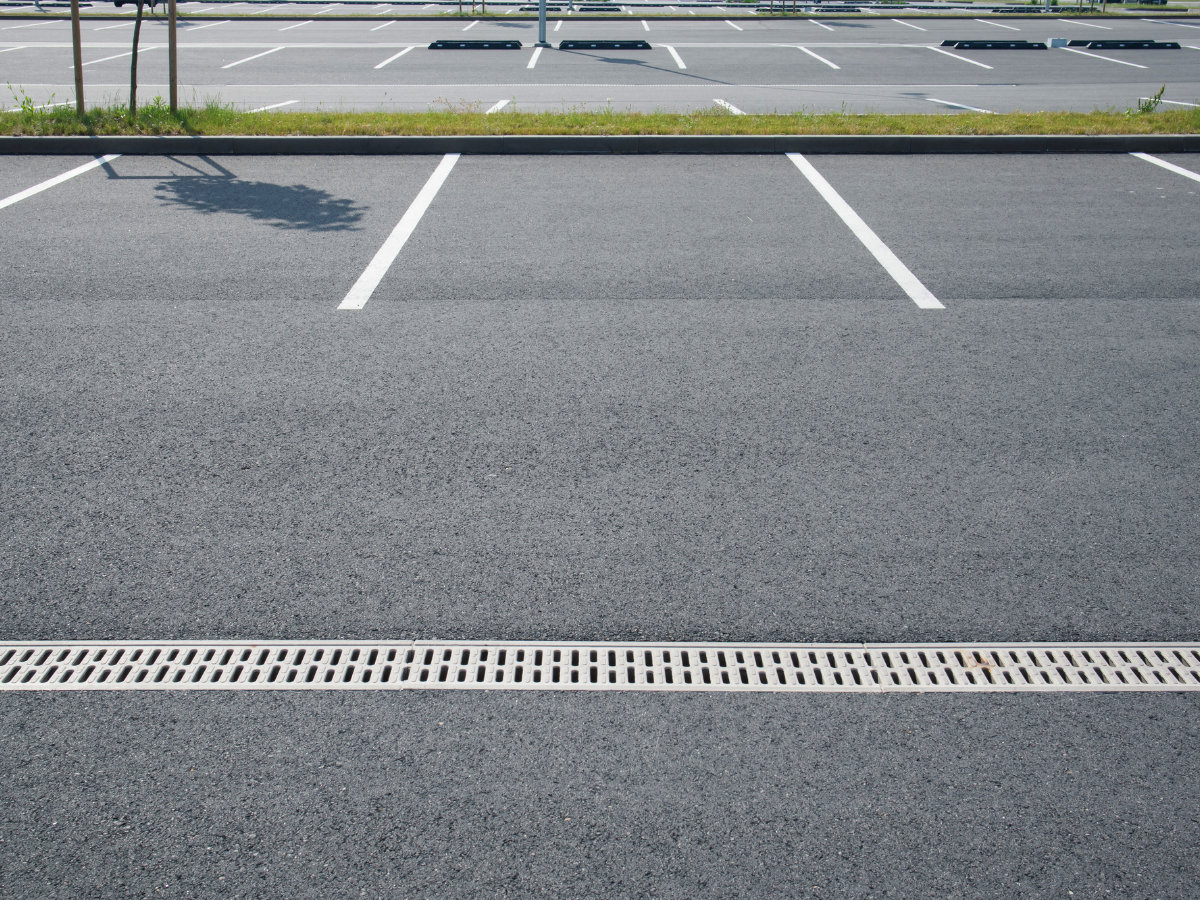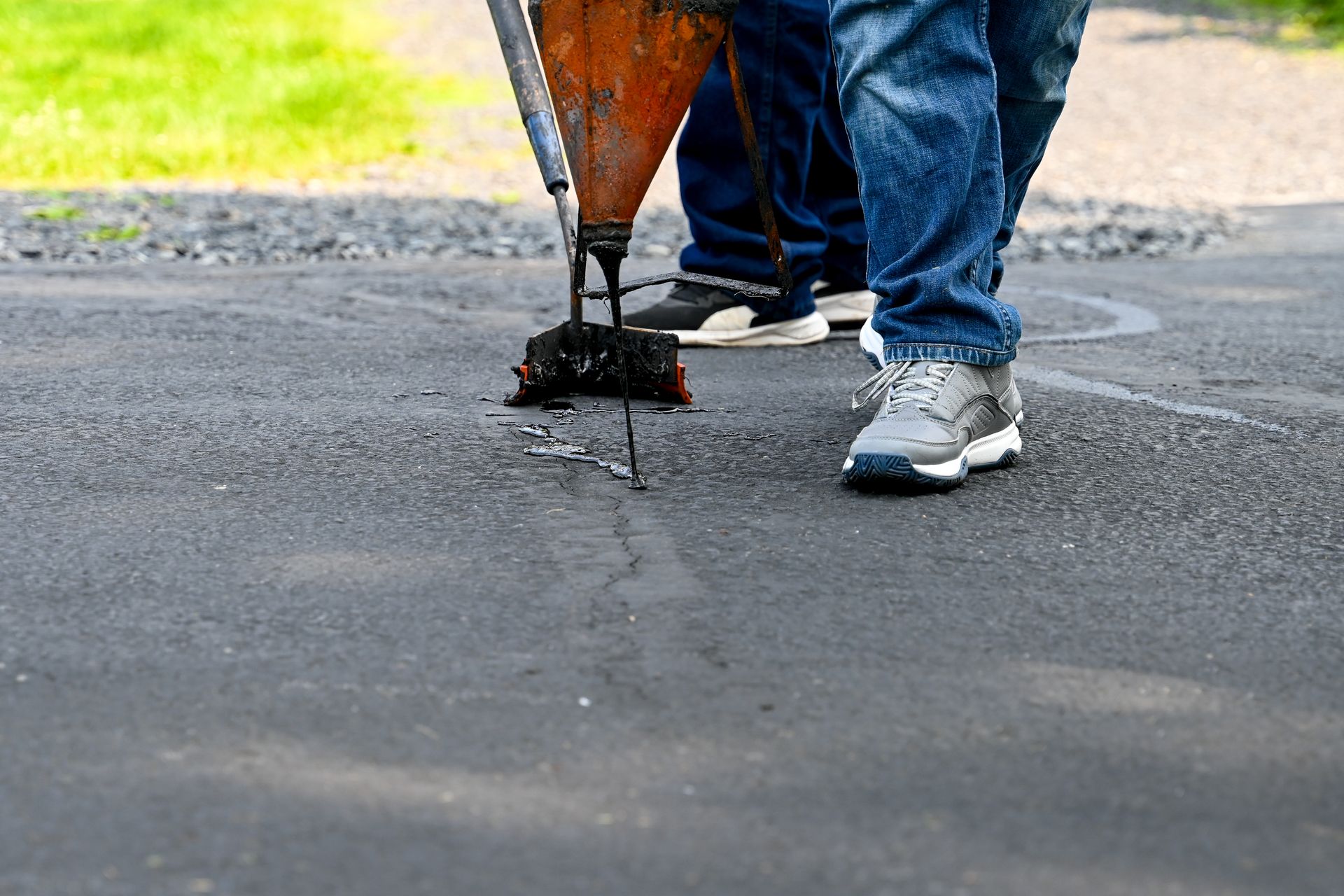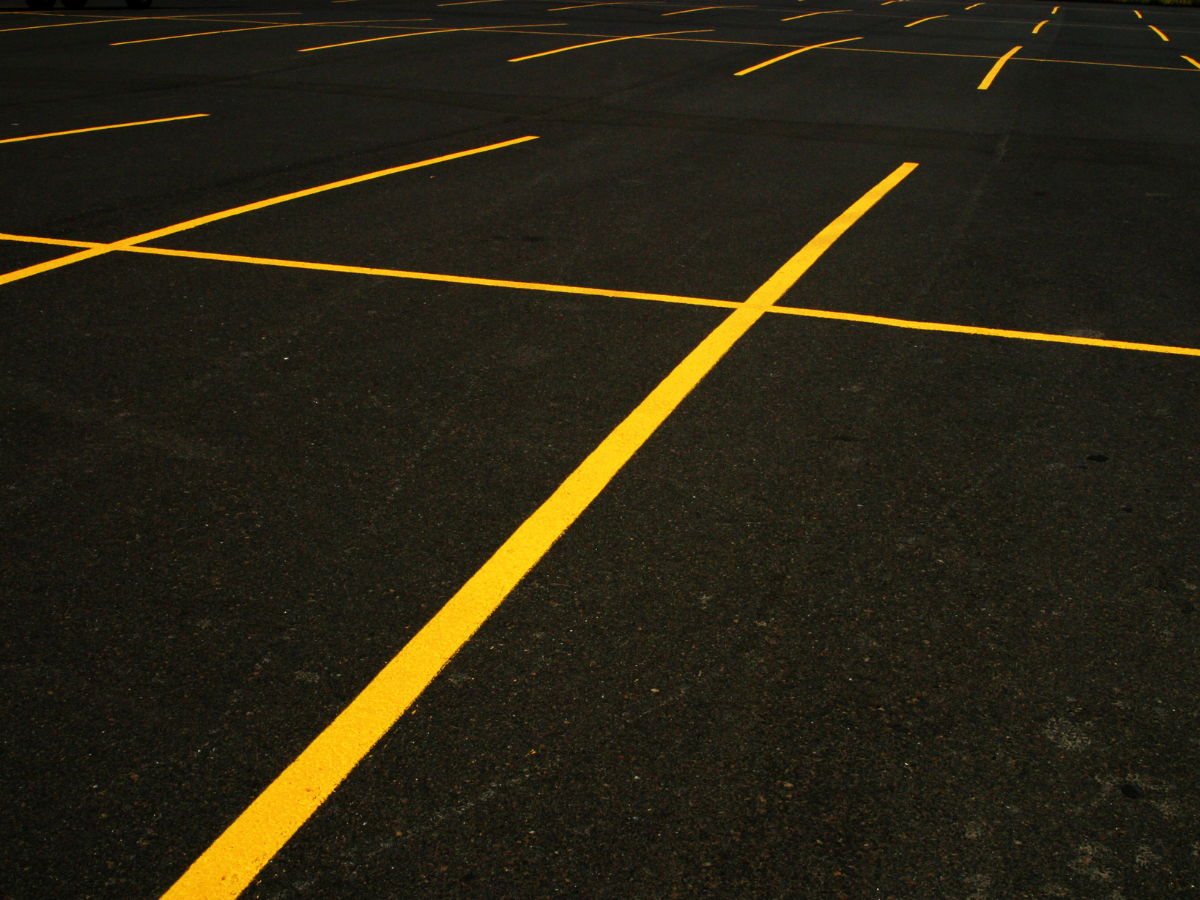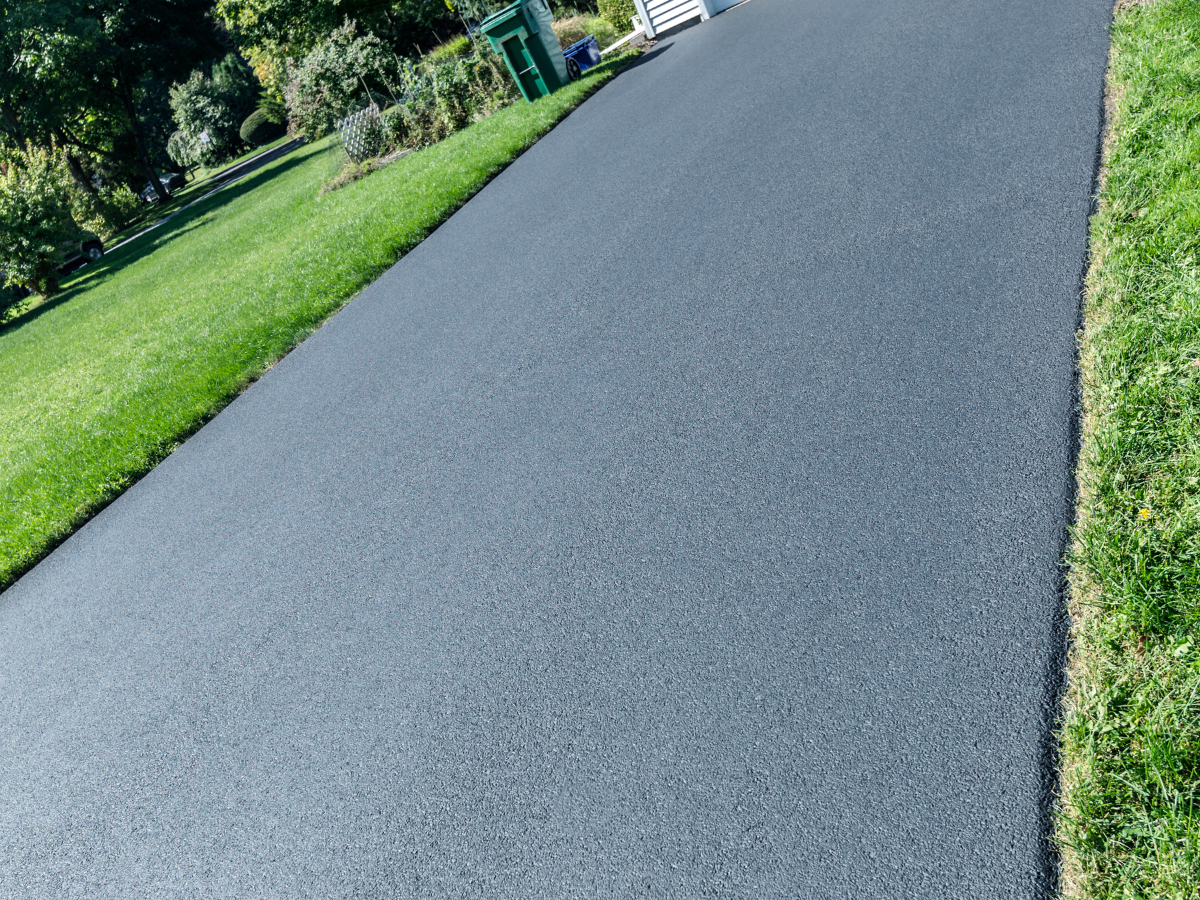How Is Sealcoating Different From Asphalt Resurfacing?
If you own a driveway or parking lot, you may be wondering about the difference between sealcoating and asphalt resurfacing. While both improve the appearance and lifespan of asphalt surfaces, they serve very different purposes. Understanding these differences can help you make the best decision for your asphalt maintenance and commercial or residential parking lot needs.
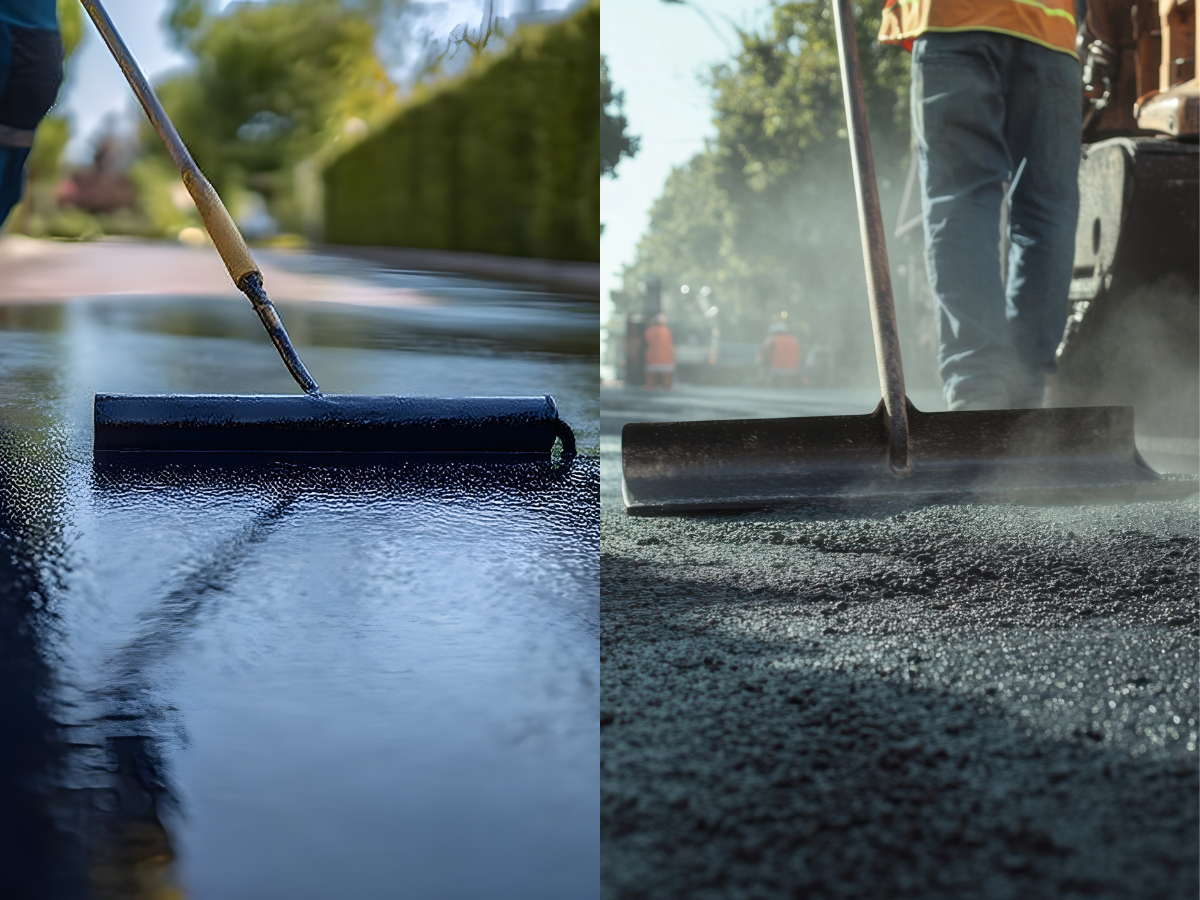
What Is Sealcoating?
Sealcoating is the application of a protective coating to the surface of asphalt. This process helps:
- Prevent water penetration and damage
- Protect against UV rays and fading
- Fill small surface cracks to prevent asphalt deterioration
- Extend the lifespan of your driveway or parking lot
Sealcoating is a preventive measure, typically applied every 2-4 years, depending on traffic, weather exposure, and asphalt condition. It’s ideal for preserving asphalt surfaces and maintaining curb appeal for both residential and commercial properties.
What Is Asphalt Resurfacing?
Asphalt resurfacing, also known as overlaying, involves applying a new layer of asphalt over the existing surface. This method is more intensive than sealcoating and is usually done when the asphalt has noticeable damage, including:
- Large cracks or potholes
- Significant surface wear
- Uneven pavement or drainage issues
Unlike sealcoating, which is preventive, asphalt resurfacing is a corrective solution that restores structural integrity and improves surface smoothness.
Key Differences Between Sealcoating and Asphalt Resurfacing
Understanding these differences will help you decide which service your driveway or parking lot needs:
- Purpose: Sealcoating protects and extends life, while asphalt resurfacing repairs and renews.
- Cost: Sealcoating is less expensive and suitable for routine maintenance; resurfacing requires a higher investment but addresses major damage.
- Surface Requirements: Sealcoating works on structurally sound asphalt; resurfacing is needed when the asphalt is structurally compromised.
- Longevity: Sealcoating adds 2-4 years of life, while resurfacing can extend the life of your asphalt by 10-15 years.
- Application Time: Sealcoating is quick and can often be completed in a day; resurfacing takes longer and may require heavy machinery.
Why Choose Professional Sealcoating Services?
Hiring experts like NextGen Great Sealcoating ensures:
- Proper surface preparation for maximum adhesion
- High-quality sealcoat products that resist weather, oil, and UV damage
- Accurate application for residential and commercial parking lots
- Advice on whether sealcoating or resurfacing is the best choice
Professional sealcoating services help protect your investment, enhance curb appeal, and prevent costly repairs down the road.
Conclusion
While sealcoating and asphalt resurfacing serve different purposes, both are essential for asphalt maintenance. Sealcoating is preventive, protecting your surface from damage and extending its lifespan, while resurfacing addresses structural issues and restores your asphalt’s integrity.
Contact NextGen Great Sealcoating today to schedule a consultation and determine the best solution for your driveway or parking lot. Keep your asphalt surfaces safe, durable, and looking their best year-round.

